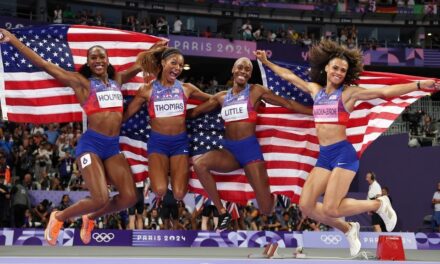
President Joe Biden’s decision to exit the 2024 Presidential Election is one of the most unprecedented moments in 21st-century politics, and its ramifications remain largely obscure at this point.
In an address to the nation less than a week after the announcement, President Biden explained it was time to pass along the country to “fresh, young” voices. The climactic, heartfelt message to Americans was given from the Oval Office surrounded by photos of past presidents and leaders. It detailed the President’s love for the United States—despite revering his role as commander in chief—and why it was important to unite Democrats for the sake of the United States’ future.
“The best way forward is to pass the torch,” President Biden said. “It’s been the privilege of my life to serve this country for 50 years. Nowhere else on Earth could a kid with a stutter from modest beginnings in Scranton, Pennsylvania and Claymont, Delaware sit behind the resolute desk in the Oval Office.”
The President’s decision to exit the race echoes Lyndon B. Johnson’s decision not to run for re-election in 1968, only now, the nation is just shy of 100 days before it decides its next leader. Before the announcement, leaders from both parties called on President Biden to step aside, citing growing perturbation surrounding his health.
Moments after Biden dropped out of the presidential race, Vice President Kamala Harris received the president’s endorsement. Biden offered his full support for her to be the Democratic nominee. In his address, he called the vice president “tough” and “capable,” stating that she has been a great partner and leader of our country.
The Harris campaign said it and allied groups raised over $100 million in the first 48 hours of her campaign. Since President Biden’s announcement was made, Harris gained the support of 1,976 pledged delegates needed to win the Democratic nomination on the first ballot. Vice President Harris also received endorsements from a majority of top Democrats, including U.S. House of Representatives Minority Leader Hakeem Jefferies, Nancy Pelosi, Chuck Schumer and Bill and Hillary Clinton, among others.
If selected, she would be the country’s first Black woman president, as well as the first person of South Asian descent, HBCU graduate, and first daughter of immigrants to be elected to the Oval Office.
Still, the Vice President will have to be officially voted as her party’s nominee at the Democratic National Convention in August, and the Democrats will have to defeat former President Donald Trump in the November election.
The Trump administration continued to wield the circumstances, with the former President taking credit for President Biden’s exit at a rally in Charlotte, North Carolina, just moments before the national address. Days prior, he doubled down on calls to move the second presidential debate from ABC, citing bias toward the Vice President as he realigns his attacks toward her following Biden’s exit.
Kamala Harris is currently undergoing deliberations to select a running mate from a short list of Democratic leaders. She is expected to announce her decision during the Democratic National Convention.



